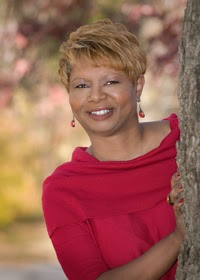An Interview with Catherine Strode
 The Colorado Health Foundation’s new President and CEO, Karen McNeil-Miller, is leading an 11-region listening tour around the state to learn more about Coloradans’ health challenges. McNeil-Miller, who has been on the job for only a month, is conducting the tour through the spring of 2016.
The Colorado Health Foundation’s new President and CEO, Karen McNeil-Miller, is leading an 11-region listening tour around the state to learn more about Coloradans’ health challenges. McNeil-Miller, who has been on the job for only a month, is conducting the tour through the spring of 2016.
In this interview with Catherine Strode, she says the tour will inform the Foundation how its annual 100 million dollar investment in Colorado can impact health care barriers unique to each one of the state’s communities.


New CEO of Health Foundation Kicks Off Statewide Tour
An Interview with Catherine Strode
The Colorado Health Foundation’s new President and CEO, Karen McNeil-Miller, is leading an 11-region listening tour around the state to learn more about Coloradans’ health challenges. McNeil-Miller, who has been on the job for only a month, is conducting the tour through the spring of 2016.
In this interview with Catherine Strode, she says the tour will inform the Foundation how its annual 100 million dollar investment in Colorado can impact health care barriers unique to each one of the state’s communities.
CS: What are your expectations of the state tour?
“I need to understand what the issues are in the state. Many of the solutions are going to be local and I want to understand what the local environments are, what the local themes are. There may be five or six things that are consistent across communities, across the state. Then we can do broader initiatives to address those. There may be some issues that are specific only to the Western Slope, or the southeastern part of the state, or the San Luis Valley. We want to be able to do some targeted work in those areas. I want to know Colorado better; I want to set foot in every county. I want to meet as many people as want to meet me. We want to start shaping solutions that meet their needs. We may have to get creative to do some of that with communities of faith, neighborhood associations, barber shops and beauty shops, where people congregate and use the outlets to educate.”
CS: What areas of Colorado’s health care system are the Foundation hoping to impact?
“We’re looking at trying to make sure all Coloradans have stable, adequate, and affordable insurance. The state expanding Medicaid was a big help to that. The state having its own Health Exchange was a big help to that. But there’s still work to be done. There’s a separate challenge we are now getting to realize. How do you keep those we got enrolled to stay enrolled? The last 5 per cent are going to be the toughest five per cent to get enrolled. Also, we have to figure out what greater role can we play in the workforce development. That’s a concrete thing we can do. We have got to ask the communities what their issues are and listen to them deeply and then see where our resources can actually help them create the community they have envisioned for themselves. For example, you may go into one community and say. ‘Why aren’t the kids outside playing? You’ve got an obesity issue in this community.’ The parents might say, ‘because there are gangs on those streets, there are drugs on those streets.’ Our assistance might be working with law enforcement to help clear the streets so the kids can get outside. That would be a health outcome solution.”
CS: Is your definition of ‘health’ broader than a traditional definition?
“I believe one of the biggest contributions we can make is to expand the conversation around health. Health isn’t relegated to the health care providers. Health isn’t relegated to whether or not you have health insurance. Health is a factor of how educated you are. Health is a factor of how much income you make. Health is a factor of how robust is the infrastructure in your neighborhood and in your community. That everybody’s in the health business, in one way or another. We know we can directly tie health predictions and health outcomes by level of education, how much money you make, where you live. There’s a direct link to it, unfortunately, with what your ethnicity might be. How do we solve for all of those things because all of those things are health.”
CS: How will the tour impact the Foundation’s strategy?
“In the first year we just want to make sure that we have either reconfirmed and recommitted our present strategy or are in the process of reshaping that strategy. I’d like to be able to say that: we’re clear and focused on what could be the game changers in the state; we’re clear and focused on who the partners are that we will need to engage with; we’re clear on what are limits are, what we realistically can, and cannot, achieve. Part of our role is to be predictive. What do we see coming in the future? People in community are really about what they see presently. How do we take what we know is going on now with them and use our resources? How do we make that match? My life’s work has been creating impact and change for other people. That is what the Foundation is trying to do. Bringing people together in forging solutions is a good match for me and the Foundation in this stage of its development.”
 Catherine Strode is Advocacy Denver’s Communications and Policy Specialist. She holds a Masters degree in Public Administration with an emphasis in Health Care Policy. Catherine publishes Policy Perspective, featuring interviews with state policy makers on issues that affect the work and mission of Advocacy Denver.
Catherine Strode is Advocacy Denver’s Communications and Policy Specialist. She holds a Masters degree in Public Administration with an emphasis in Health Care Policy. Catherine publishes Policy Perspective, featuring interviews with state policy makers on issues that affect the work and mission of Advocacy Denver.